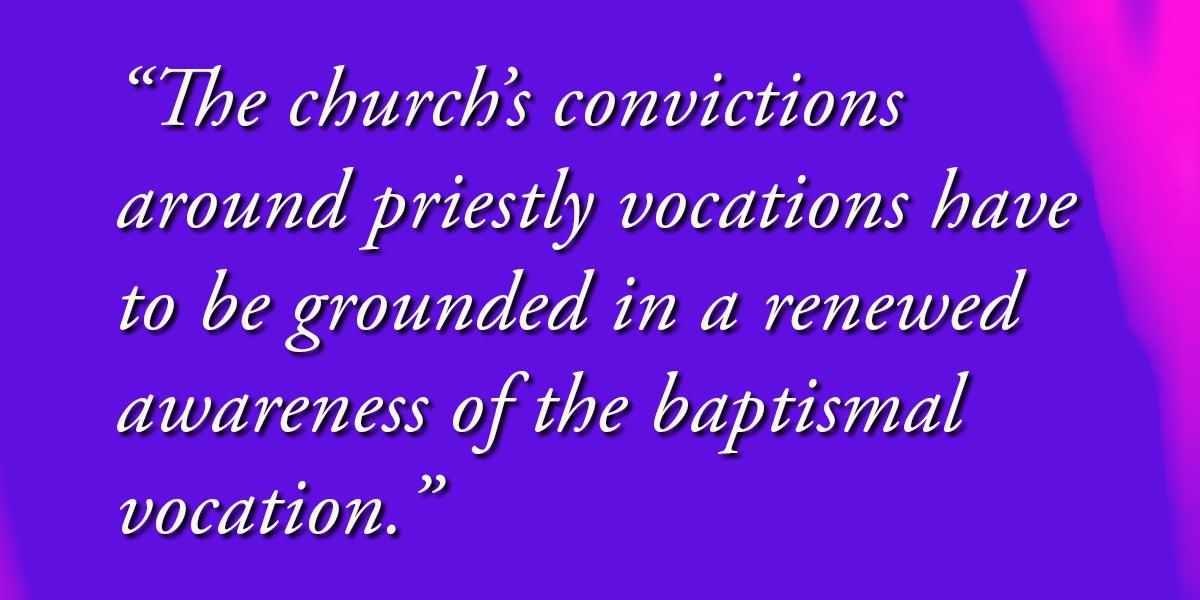
In the Vineyard :: January 31, 2020 :: Volume 20, Issue 2
News from National
ProPublica Measures Diocesan Predator Lists
A new report from ProPublica sheds light on the insufficient and inconsistent response of dioceses across the country to the Catholic sex abuse scandals. The problem with the diverse releases of “credibly accused” lists is twofold, they conclude. First, a substantial number of dioceses have failed to release “credibly accused” lists at all: “forty-one dioceses and eparchies serving over 9 million Catholics,” according to ProPublica. Second, even those dioceses that have released lists of abusive priests, have done so with varying degrees of specificity. This specificity is important, among other reasons, because it allows victim-survivors to determine whether a particular cleric on the list was their abuser by identifying the dates that cleric was assigned to their parish.
ProPublica highlights this tension by discussing the case of Alfredo Prado, which they describe as “a striking example of inconsistencies in the information that bishops disclose about accused clergy members.” Prado was accused of abuse by individuals in six separate dioceses across the state of Texas. While he appears on the credibly accused lists of all of them (a good step), the information provided on those lists varies wildly, with some listing him as deceased and some omitting that. The reports even conflict on his date of ordination.
The United States Catholic Council of Bishops has tried to wash its hands of the problem. “Recognizing the authority of the local bishop, and the fact that state and local laws vary,” a spokeswoman claimed, “the decision of whether and how to best release lists and comply with varying civil reporting laws have been the responsibility of individual dioceses.”
- Useful links concerning this story:
Highlighting Lay Initiatives
In response to a challenge issued last month in Michael Sean Winter’s National Catholic Reporter column, VOTF Vice President Margaret Roylance described the types of structural reforms that are possible even under today’s canon law. Read her letter to NCR editor Tom Roberts.
Save the Date: Oct. 3, 2020
Our conferences are well known for great speakers, lots of news, and helpful tips for making your voice heard locally, regionally, and nationally.
2020 will be the same, and we’ll be back at the popular Boston Marriott Newton Hotel with a much reduced overnight room rate.
Don’t miss it! Mark your calendars now for Saturday, Oct. 3, in Newton MA. See you there!
Fr. Lennan Shares Report on BC Conference

Fr. Richard Lennan, who spoke at VOTF’s 2019 Conference: Creating a Just Church, is professor of systematic theology at Boston College. He was one of three contributors to a paper called Communiqué of Conference on ‘To Serve the People of God: Renewing the Conversation on Priesthood and Ministry.’ The paper resulted from a two-day conference, Jan. 2-3, 2020, that followed up on a two-year-long Boston College seminar on priestly formation. Fr. Lennan wishes to share this paper with VOTF members, and you can read the paper by clicking here.
Book Corner
Icons of Christ: A Closer Look at Women Deacons & History
Phyllis Zagano, Senior Research Associate-in-Residence and Adjunct Professor of Religion at Hofstra University and frequent speaker at VOTF events, recently wrote Women: Icons of Christ. The book will be available through the Paulist Press on February 11, 2020.
According to the Paulist Press, Women: Icons of Christ traces the history of ministry by women, especially those ordained as deacons. History teaches that women ministered in baptism, catechesis, altar service, spiritual direction, and confession, and anointed the sick, either as deacons or as lay persons. The book illustrates how priestly clericalism effectively removed women’s leadership, voices, and official ministries from the life of the Church by eliminating women from sacramental ministry, altar service, and preaching.
The question, “Who can be an icon of Christ?” underlies the discussion. There seems to be a simple answer. We know from the revelation of Scripture that all Christians are equally human, all Christians are part the Body of Christ. Yet, the Catholic Church both really and symbolically excludes half its members.
Women cannot be ordained to the renewed diaconate, even though the most complete Church histories demonstrate genuine precedent. Why? The reduction of all the arguments, supported by the manipulation of history, is that women cannot image Christ. Phyllis Zagano presents cogent arguments supported by history to refute arguments against restoring women to the ordained diaconate.
To reserve your copy, click here. (Or use the Amazon link on VOTF’s home page to ensure VOTF receives a percentage of your purchase. You also can use VOTF as your designated “Amazon Smile” charity–all purchases you make will generate a contribution to VOTF.)
![]()
Highlighting issues we face working together to Keep the Faith, Change the Church
TOP STORIES
New database of abusive clergy will ‘put pressure’ on bishops to improve transparency
“A new, independent database listing nearly 6,000 priests accused of abuse was launched this week, marking what some observers say is a sign of a new era of transparency in the Catholic Church and others labeling it the “privatization of justice” after years of church leaders blocking such efforts. The database, which was activated on Monday (Jan. 27), was a yearlong effort by ProPublica, ‘a nonprofit newsroom that investigates abuses of power.’ The launch comes after the 2018 release of the Pennsylvania grand jury report, which sent shock waves through the U.S. Church as it chronicled seven decades of abuse of more than 1,000 victims at the hands of 300 priests.” By Christopher White, Cruxnow.com
Vatican orders sex abuse investigation of Brooklyn bishop
“The Vatican has ordered an investigation of a sexual abuse allegation against Brooklyn Bishop Nicholas DiMarzio, who was previously named by Pope Francis to investigate the church’s response to clergy sexual abuse in Buffalo. Cardinal Timothy Dolan of the Archdiocese of New York received instructions on Jan. 7 to begin an investigation of allegations that DiMarzio molested a child while he was a parish priest in New Jersey in the mid-1970s, according to a statement released over the weekend (Jan. 18) by Dolan’s spokesman Joseph Zwilling.” By Associated Press
10 years after Vatican reform, Legion in new abuse crisis
“The administrator of the elite Catholic school in Cancun, Mexico, used to take the girls out of class and send them to the chapel, where the priest from the Legion of Christ religious order would sexually abuse them. ‘As some were reading the Bible, he would rape the others in front of them, little girls aged 6 to 8 or 9,’ said one of his victims, Ana Lucia Salazar, now a 36-year-old Mexican television host and mother of three. ‘Afterward, nothing was the same, nothing went back to the way it was,’ she said through tears at her home in Mexico City.” By Maria Verza and Nicole Winfield, Associated Press
Rome summit to examine clerical sex abuse
“Rome is to host a summit examining how the clerical sexual abuse crisis is forcing the Church to go back to its core mission and re-think its model of the priesthood. The gathering of around 90 theologians from across the world, hosted by the Centre for Child Protection at the Pontifical Gregorian University, will look at the ecclesiological impact of abuse, in a way that is not simply legal, or procedural. The 11-14 March meeting is to look clericalism, ecclesial reform and rediscovering the mission of Jesus in Church structures.” By Christopher Lamb, The Tablet
Appeals court acquits French cardinal of sex abuse cover-up
“A French appeals court on Thursday (Jan. 30) acquitted a French cardinal of covering up the sexual abuse of minors in his flock. The appeals court in the southeastern French city of Lyon gave no explanation on Thursday for its ruling. Cardinal Philippe Barbarin, archbishop of Lyon, had been convicted in March and given a six-month suspended sentence for failing to report a predator priest to police. But Pope Francis refused to accept the cardinal’s decision to resign until the appeals process is complete.” By Associated Press on Cruxnow.com
Click here to read the rest of this issue of Focus …
Calendar
Phyllis Zagano, PhD., an internationally recognized expert on the history of the women’s diaconate in the Catholic Church and a member of the Papal Commission on Women Deacons, is hosting a Zoom meeting on women deacons, and you are invited. Sister Colleen Gibson, S.S.J., will moderate. The event takes place on Feb. 17, 2020, at 7:30 p.m. Eastern Time (U.S. & Canada). You may register for this meeting by clicking here. After registering, you will receive a confirmation email containing information about joining the meeting.
Letter to the Editor
It appears, particularly in the United States, that there is a faction who attempt to use the conservative retired Pope to promote a conservative agenda contrary to the liberal beliefs of Pope Francis. This displays the problem of the concept of a retired Pope. In many ways the Pope is like a King and, like a King, he doesn’t retire he abdicates. There is no dishonor in abdicating but once he abdicates, he should be treated and addressed not as a retired Pope but as a Cardinal.
K. Booth
Comments?
Please send them to Siobhan Carroll, Vineyard Editor, at Vineyard@votf.org. Unless otherwise indicated, I will assume comments can be published as Letters to the Editor.
Reminder: Please notify office@votf.org if you change your email address.
© Voice of the Faithful 2020. All Rights Reserved.
